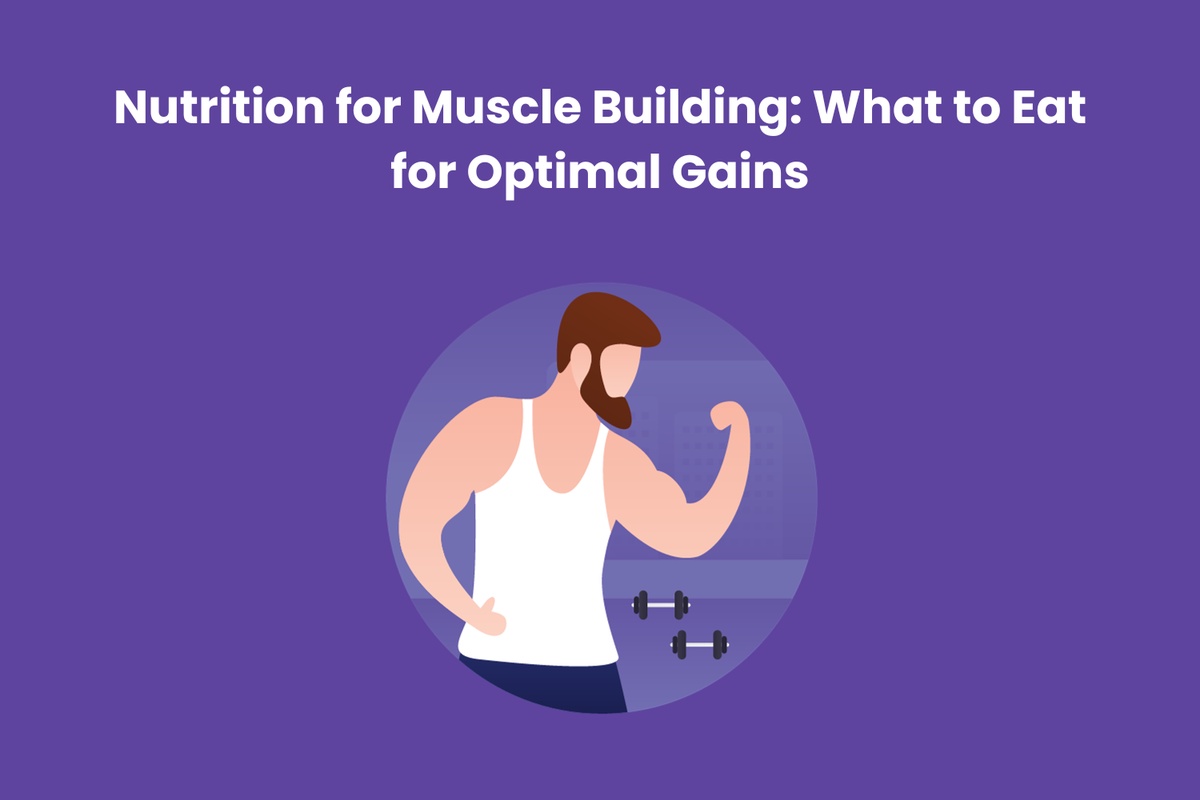Embarking on a journey to build muscle isn't just about hitting the weights; it's a holistic process that hinges on a strategic fusion of resistance training and nutrition. In the realm of muscle building, the saying "you are what you eat" takes on profound significance. In this exploration, we unravel the intricacies of nutrition for muscle building, providing insights into what to eat for optimal gains and, more importantly, How to Build Muscle effectively.
The Foundation: Protein, the Building Block of Muscles
At the core of any muscle-building nutrition plan lies the indispensable macronutrient: protein. Often hailed as the building block of muscles, protein plays a pivotal role in muscle repair and growth. When you engage in resistance training, microscopic damage occurs in your muscle fibers. It's the repair of these fibers that leads to muscle growth, and protein is the key facilitator in this process.
Incorporating lean protein sources into your diet is essential. Foods such as chicken, turkey, fish, eggs, dairy products, and plant-based options like beans and tofu are rich sources of high-quality protein. The amount of protein needed varies from person to person, but a general guideline is to aim for 1.6 to 2.2 grams of protein per kilogram of body weight.
Fueling the Fire: Carbohydrates for Energy
While protein takes the spotlight for muscle repair, carbohydrates play a crucial role in providing the energy needed for intense workouts. When you engage in resistance training, your body relies on glycogen stores for fuel. Consuming an adequate amount of carbohydrates ensures that your glycogen stores are replenished, allowing you to train at optimal intensity.
Opt for complex carbohydrates like whole grains, fruits, vegetables, and legumes. These sources provide a sustained release of energy, preventing the rapid spikes and crashes associated with simple carbohydrates. Timing your carbohydrate intake around your workout can further optimize energy levels.
The Power of Healthy Fats: Supporting Hormonal Balance
In the quest for muscle building, don't overlook the importance of healthy fats. Fats play a crucial role in hormone production, including testosterone, which is a key player in muscle growth. Additionally, fats provide a concentrated source of energy, especially during longer, endurance-based workouts.
Incorporate sources of healthy fats into your diet, such as avocados, nuts, seeds, olive oil, and fatty fish like salmon. Striking a balance between different types of fats—monounsaturated, polyunsaturated, and omega-3 fatty acids—ensures a comprehensive nutritional profile.
Micronutrients: The Unsung Heroes
Beyond the macronutrients, micronutrients play an equally vital role in supporting overall health and muscle function. Nutrients such as vitamin D, calcium, magnesium, and zinc contribute to bone health, immune function, and muscle contraction. Deficiencies in these micronutrients can hinder your progress in building muscle and compromise your overall well-being.
Ensure a diverse and colorful plate to obtain a broad spectrum of vitamins and minerals. Leafy greens, berries, citrus fruits, nuts, and whole grains are excellent sources of micronutrients that complement your muscle-building journey.
Hydration: The Overlooked Essential
In the pursuit of muscle gains, hydration often takes a back seat, but its significance cannot be overstated. Water is essential for nutrient transport, temperature regulation, and overall cellular function. Dehydration can lead to decreased exercise performance and hinder recovery.
Make it a habit to stay adequately hydrated throughout the day, especially before, during, and after your workouts. The American Council on Exercise recommends consuming 17-20 ounces of water 2 to 3 hours before exercising, 8 ounces 20-30 minutes before, and 7-10 ounces every 10 to 20 minutes during exercise.
Meal Timing: Maximizing Nutrient Utilization
It's not just about what you eat but also when you eat. Optimizing meal timing can enhance the utilization of nutrients for muscle building. Consuming a balanced meal or snack that includes protein and carbohydrates within 1-2 hours of your workout provides the necessary nutrients for muscle repair and glycogen replenishment.
Moreover, consider spreading your protein intake evenly across meals to maintain a continuous supply of amino acids for muscle synthesis. This approach ensures that your body has a sustained pool of nutrients to support muscle growth throughout the day.
Supplementation: Filling the Gaps
While whole foods should form the foundation of your nutrition plan, supplements can play a supplementary role in meeting specific needs. Whey protein, for instance, can be a convenient source of high-quality protein, especially post-workout. Creatine is another supplement that has been extensively studied and shown to enhance muscle strength and size.
Before incorporating supplements, it's advisable to consult with a healthcare professional or a registered dietitian to ensure they align with your individual needs and goals.
Conclusion
In the intricate dance of how to build muscle, nutrition takes center stage as a key protagonist. A well-crafted nutrition plan, complemented by effective resistance training, lays the foundation for optimal gains. As you embark on your muscle-building journey, remember that it's not just about building muscles; it's about nurturing your body with the right nutrients to support overall health and vitality.


No comments yet